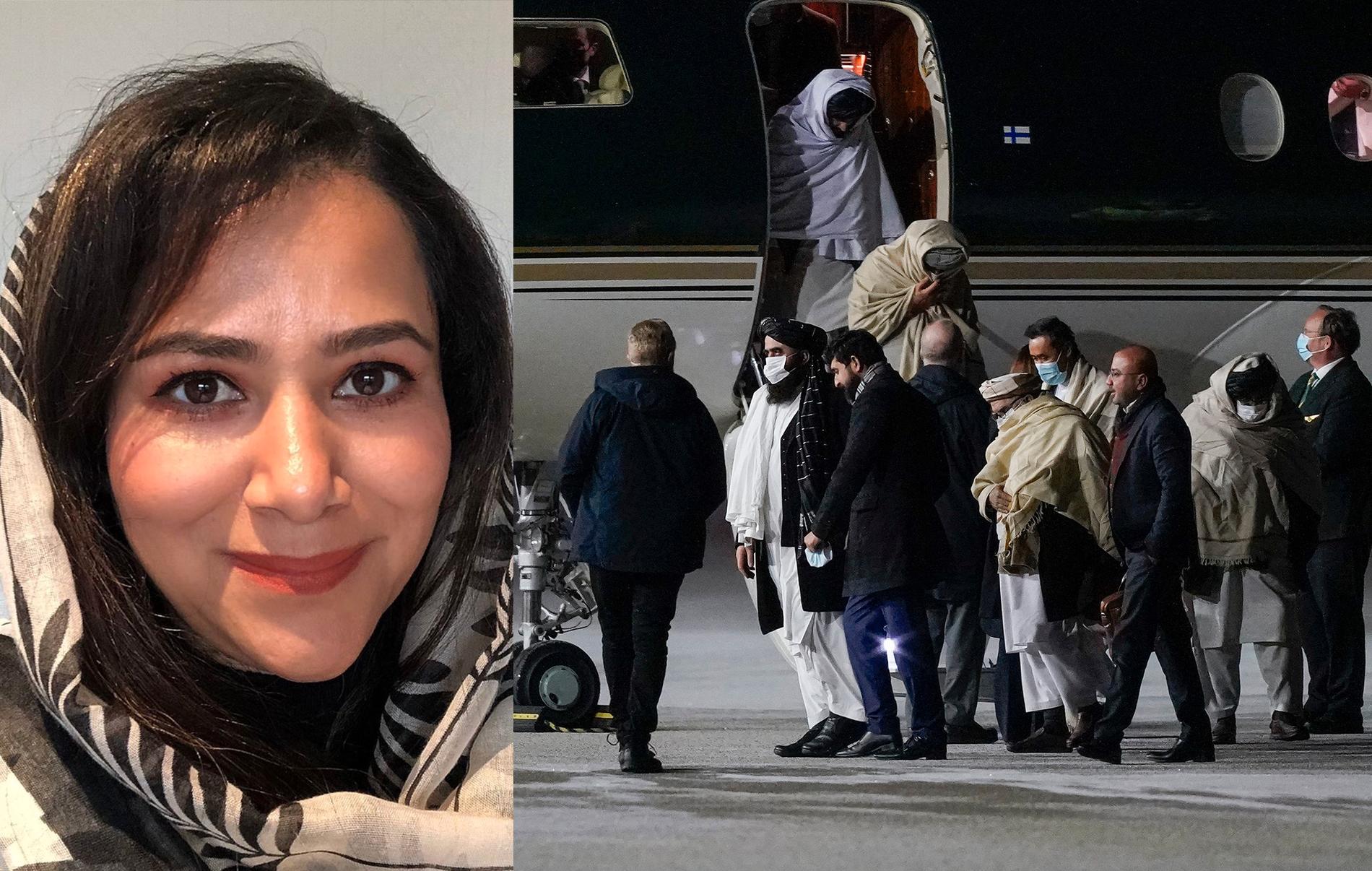Women’s campaigner and former oil minister in Afghanistan, Nargis Nehan (40), is critical of the ongoing Taliban meetings in Oslo. She herself said no thanks to the invitation from the Ministry of Foreign Affairs.
– I do not expect much from these conversations, Nehan says to VG.
Between 2017 and 2019, she served as Minister of Petroleum and Energy in Afghanistan, and has also held several key positions in the Afghan government.
When the Taliban conquered Kabul last year so the ex-minister had to flee to Norway.
Over the next few days, a Taliban delegation of 15 men will arrive meet a number of activists and diplomats at the Soria Moria hotel in Oslo. The themes on the poster include emergency aid and human rights.
The meetings attract attention because it is for the first time a western country invites representatives of the new Taliban government to visit.
– It is an important event that helps the Norwegian government to show that they are doing something in the UN Security Council, but it is not helpful for the population itself, says Nargis Nehan.
On the contrary, it means that we are losing our only bargaining chip – namely that the international community has not recognized the Taliban regime.
Nargis Nehan claims that neither she nor other activists from Afghanistan knew about the meetings before they were asked by the Ministry of Foreign Affairs to participate:
– None of us were consulted before the meetings were agreed, although we could have given them a broader picture of the situation in Afghanistan. My impression is that it was all put in order at fairly short notice, she says.
The Ministry of Foreign Affairs confirms in an e-mail to VG that Nargis Nehan was invited to the talks with the Taliban, but that she refused:
– We have a very strong understanding that these can be demanding trade-offs. Afghans like Nargis Nehan show an important commitment. It is crucial to have strong and clear voices like hers, says State Secretary Henrik Thune.
– Many Afghans have asked for international support to get in touch with the Taliban. We have planned the meetings thoroughly and consulted closely with the participants.
Beyond this, the Ministry of Foreign Affairs does not wish to comment on Nehan’s statements.
A country in great crisis
An important backdrop for the Taliban meetings is that the UN recently announced that one “Complete humanitarian catastrophe” threatens the country.
Last year, Afghanistan was hit its worst drought in 30 years, while millions were driven into exile by the Taliban. In addition, the country has been cut off from a significant amount of aid money, as well as the Treasury of nearly ten billion dollars, after the previous government was overthrown.
This was also highlighted in a column by Foreign Minister Anniken Huitfeldt which was published in VG Saturday, in which she emphasized that Norway does not want to legitimize the Taliban regime by inviting them:
– The alternative to engaging them now is a worsening humanitarian crisis and possible societal collapse. It will have terrible consequences for the Afghan population first and foremost, writes Huitfeldt.
VG has previously spoken with activist Jamila Afghani, who also believes it is necessary to enter into dialogue with the Taliban – even though she herself had to flee Kabul.
Nargis Nehan says that she has talked to several Afghan activists who have agreed to attend the meetings, but that she has a slightly different point of view than them:
– They put the humanitarian problems first, and think that we can fix the rest later. My concern is that it may become all the more difficult to solve the other problems the country is facing, she says.
The Taliban are using the humanitarian crisis to gain support from the international community, but they have no intention of returning anything to their country.
Should have made demands
The former oil minister does not necessarily believe that it is wrong to enter into dialogue with the Taliban, but that strict demands should have been made in advance of the meetings.
– The Taliban comes with demands all the time, without delivering anything in return. Instead of opening schools for women, and allowing them to participate in working life, they have been concerned with controlling the population, says Nehan.
At their first press conference after conquering Kabul, The Taliban claimed that women should be allowed to study and work, albeit “within the framework of the Taliban”.
In most of the country, however, women have not yet been allowed to return to the classrooms in the steps above 7th grade. In a recent interview with AP The Taliban announced that this would be in place by March 21.
As recently as Thursday, a group of women rights activists in Afghanistan reported that their homes had been raided by armed Taliban fighters, and that several had been beaten and arrested, writes the Guardian.
– The international community continues to believe what the Taliban say, without using the negotiating cards they have. It has primarily taken place in the Taliban’s favor, says Nehar.
– There have been no signs that they are open to change, she adds.
–

